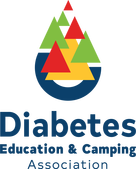Our Mission
The mission of Camp Hendon is to give children with diabetes life-changing experiences, empowering each of them to take control of their unique journey.
Our Vision
To be a vibrant and diverse community of support for young people living with diabetes and their families, rooted in and nurtured by a transformative experience of traditional summer camp.
Our Core Values: PRIDE
PASSION: We are a community devoted to enhancing the lives and experiences of the children and families we serve through camp and beyond.
RELATIONSHIPS: The Camp Hendon experience creates a family atmosphere with lifelong relationships between staff, volunteers, campers, families, and collaborators.
INTEGRITY: Our organization adheres to the highest moral and professional standards. The health, safety, and wellbeing of our camp participants, volunteers, and partners are of the utmost importance.
DEDICATION: Camp Hendon is a continuous source of support for those affected by diabetes.
EMPOWERMENT: Camp Hendon gives campers and families the tools, relationships, and support they need to take control of their journey with diabetes. We seek to build a community of youth who are confident and thriving in the face of this disease.
RELATIONSHIPS: The Camp Hendon experience creates a family atmosphere with lifelong relationships between staff, volunteers, campers, families, and collaborators.
INTEGRITY: Our organization adheres to the highest moral and professional standards. The health, safety, and wellbeing of our camp participants, volunteers, and partners are of the utmost importance.
DEDICATION: Camp Hendon is a continuous source of support for those affected by diabetes.
EMPOWERMENT: Camp Hendon gives campers and families the tools, relationships, and support they need to take control of their journey with diabetes. We seek to build a community of youth who are confident and thriving in the face of this disease.
Our Program ObjectivesCamp Hendon plans and operates two, all-volunteer week long residential camping programs for approximately 165 children with diabetes between the ages of 8-17.
Camp Hendon also provides retreat-style weekend camps including a Teen Retreat for campers ages 13 - 17, and Family Camp for children with T1D ages 5 - 12, siblings of any age, parents, and other caregivers. Camp Hendon's Parents' Educational Series provides education ad support on the second Tuesday of every month at 7pm. This virtual series is open to ANY caregiver of a child with T1D. You do not have to be a Camp Hendon family. To view our schedule of topics, visit www.CampHendon.org/Parents |
Camp Goals
|
Benefits of Camp
Over 300,000 people in Kentucky alone are living with diabetes. It impacts many lives, especially children. Many of these children often struggle with feeling like they are alone and that no one understands what they are dealing with. Camp Hendon exists to serve children with diabetes in Kentucky and the surrounding region.
A significant body of knowledge and research exists to support the role that an organized camp experience plays in child social and identity development. Dustin (1989) identifies the role of camping in which children become active members of a community and can see the connectedness of their actions and the consequences of their actions.
This community development for a child with a chronic illness is important for psycho-social development, but also key to Camp Hendon is positive behavior-modeling and an equally important goal is to enable children with diabetes to meet and share their experiences with one another while they learn to be more personally responsible for their disease.
For this to occur, a skilled medical, camping, and role-modeling staff must be available to ensure optimal safety and an integrated camping/educational experience that provides for the realistic practice of exercise, glucose, diet, and injection control in an authentic setting that emulate day-to-day living for youth (i.e., self-management). In addition, campers have formed meaningful friendships with others who are coping with the similar daily struggles of living with diabetes.
A significant body of knowledge and research exists to support the role that an organized camp experience plays in child social and identity development. Dustin (1989) identifies the role of camping in which children become active members of a community and can see the connectedness of their actions and the consequences of their actions.
This community development for a child with a chronic illness is important for psycho-social development, but also key to Camp Hendon is positive behavior-modeling and an equally important goal is to enable children with diabetes to meet and share their experiences with one another while they learn to be more personally responsible for their disease.
For this to occur, a skilled medical, camping, and role-modeling staff must be available to ensure optimal safety and an integrated camping/educational experience that provides for the realistic practice of exercise, glucose, diet, and injection control in an authentic setting that emulate day-to-day living for youth (i.e., self-management). In addition, campers have formed meaningful friendships with others who are coping with the similar daily struggles of living with diabetes.
Statement of need for, and benefit of, a psycho-social program for children with diabetes in KY
Diabetes is considered to be one of the most psychologically and behaviorally demanding chronic illnesses facing adolescents (Cox & Gonder-Frederick, 1992). With no cure for diabetes on the immediate horizon, self-management has become the cornerstone of diabetes treatment (Mensing, et al., 2000).
The ultimate goal for a youth diagnosed with diabetes is effective self-management combined with the support of parents, health-care professionals, and others that directly influence the youth’s decision on how to manage their illness (Schilling, Grey, & Knall, 2002). However, considerable evidence suggests non-adherence to appropriate maintenance and management regimens could be as high as 93% (Coates & Boore, 1998).
Youth with poor self-management are at higher risk of diabetes-related complications that may lead to physiological, psychological, social, and societal problems.
Effective self-management has been shown to slow the onset and progression of health related complications (National Institute of Health, 2003) while increasing quality of life (Hoey, et al., 2001). Financial burdens have shown to be lessened by effective self-management. In 2002, the total annual economic cost of diabetes was estimated to be $132 billion or nearly 15% of health-care expenditures (American Diabetes Association, 2004).
Fortunately, the benchmark study by the Diabetes Control and Complications Trial Research Group (1993) demonstrated that any sustained lowering of blood glucose helps with the prevention of diabetes-related complications and secondary illnesses. In addition, Sheldon. Williams, and Joiner (2003) found that providing autonomy supportive environments assisted individuals with diabetes to better self-manage their illness.
In 2016, Jill Weissberg-Benchell of the Robert H. Lurie Children's Hospital of Chicago published the Diabetes Camp Matters study, which assessed families' views of their diabetes camp experience and outcomes. According to this study, "Parents and campers all report improved self-care skills after camp." Additionally, the study found that children who attend three or more week-long diabetes camping programs experienced increased positive outcomes.
The ultimate goal for a youth diagnosed with diabetes is effective self-management combined with the support of parents, health-care professionals, and others that directly influence the youth’s decision on how to manage their illness (Schilling, Grey, & Knall, 2002). However, considerable evidence suggests non-adherence to appropriate maintenance and management regimens could be as high as 93% (Coates & Boore, 1998).
Youth with poor self-management are at higher risk of diabetes-related complications that may lead to physiological, psychological, social, and societal problems.
Effective self-management has been shown to slow the onset and progression of health related complications (National Institute of Health, 2003) while increasing quality of life (Hoey, et al., 2001). Financial burdens have shown to be lessened by effective self-management. In 2002, the total annual economic cost of diabetes was estimated to be $132 billion or nearly 15% of health-care expenditures (American Diabetes Association, 2004).
Fortunately, the benchmark study by the Diabetes Control and Complications Trial Research Group (1993) demonstrated that any sustained lowering of blood glucose helps with the prevention of diabetes-related complications and secondary illnesses. In addition, Sheldon. Williams, and Joiner (2003) found that providing autonomy supportive environments assisted individuals with diabetes to better self-manage their illness.
In 2016, Jill Weissberg-Benchell of the Robert H. Lurie Children's Hospital of Chicago published the Diabetes Camp Matters study, which assessed families' views of their diabetes camp experience and outcomes. According to this study, "Parents and campers all report improved self-care skills after camp." Additionally, the study found that children who attend three or more week-long diabetes camping programs experienced increased positive outcomes.
Funding
Kentucky Diabetes Camp for Children (KYDCFC) is an independent 501(c)3 nonprofit organization, registered with the IRS and with the Secretary of State in Kentucky. KYDCFC receives no funding from JDRF (Juvenile Diabetes Research Foundation) or the ADA (American Diabetes Association).
Camp is supported through donations from people like you, and by foundations and some corporations. Over 75% of our revenues come from charitable giving; the remainder comes from camp fees. You can donate online here.
The Kentucky Diabetes Camp for Children, Inc. dba Camp Hendon is a tax-deductible charitable 501(c) nonprofit whose Tax ID is 27-3619275.
Click here to view historic financial information, including Form 990s and audited financial statements
Camp is supported through donations from people like you, and by foundations and some corporations. Over 75% of our revenues come from charitable giving; the remainder comes from camp fees. You can donate online here.
The Kentucky Diabetes Camp for Children, Inc. dba Camp Hendon is a tax-deductible charitable 501(c) nonprofit whose Tax ID is 27-3619275.
Click here to view historic financial information, including Form 990s and audited financial statements


